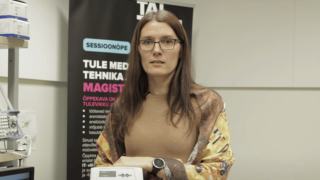Members

Head of the research team
Publications
Projects
- Nils Fredrik Arne Uhlin
- Laura Päeske
- Olga Vovk
- Jana Holmar
- Kristian Juha Ismo Kankainen
- Safoora Masoumirad
- Moonika Viigimäe
- Tuuli Uudeberg
- Kadi Lubi
- Kerli Norak
- Maarja-Liis Elland
- Annika Adoberg
- Jekaterina Reut
- Priit Kruus
- Anna Dudkina
- Anton Tšertov
- Vitali Sõritski
- Ivo Fridolin
- Grete Talviste
- Jürgen Arund
- Risto Tanner
- Riina Hallik
- Anna Kidakova
- Igor Bossenko
- Einar Kivisalu
- Margus Viigimaa
- Merike Luman
- Kristjan Pilt
- Liisi Leis
- Joosep Paats
- Maksim Jenihhin
- Maie Bachmann
- Roman Boroznjak
- Toomas Klementi
- Akinrinade George Ayankojo
- Vu Bao Chau Nguyen
- Hardi Selg
- Jaanus Lass
- Katrin Gross-Paju
- Peeter Ross
Recognitions
The Research Article of the Year 2023, School of Information Technologies, TalTech
Researcher of the year 2021, School of Information Technologies, TalTech
Estonian Research Council nomination to AcademiaNet – an international portal of excellent female academics managed by Swiss National Science Foundation